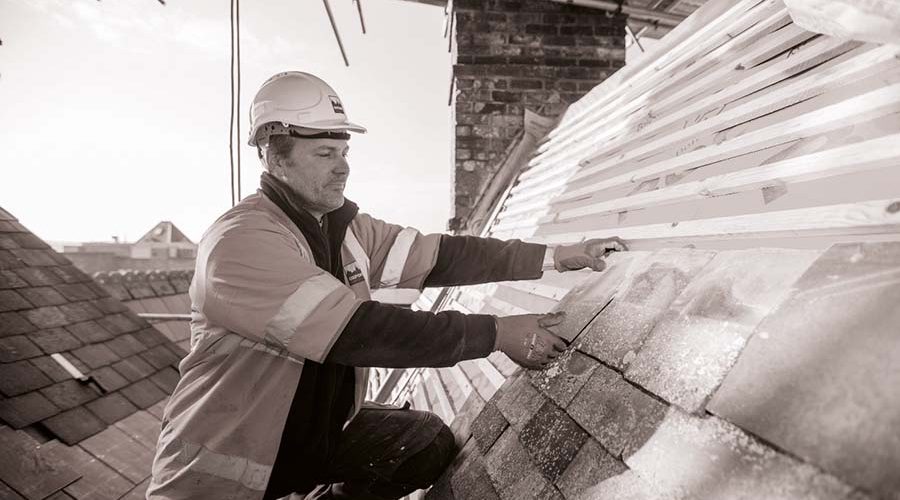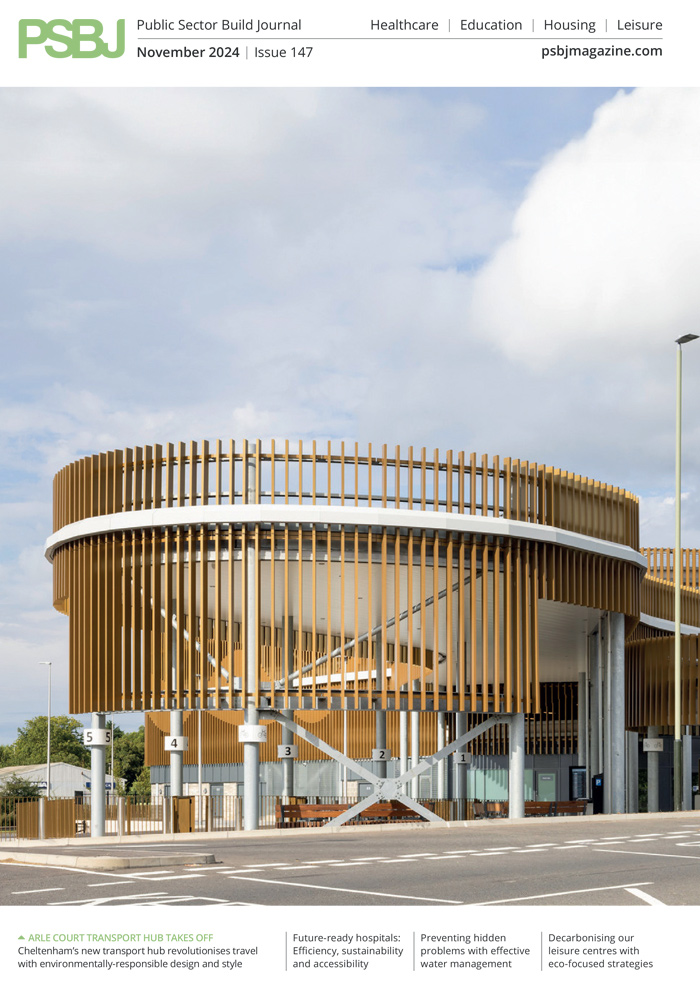Martin Shields, Head of Safety, Health and Environment, and Chris Harvey, Organisational Development Manager, at ODS discuss how new ways of working can create a better customer experience and improve the skillsets of workers.
ODS
ODS is a services company fully owned by Oxford City Council. It has over 600 employees, of which around 400 are field-based, in roles such as construction trades and property maintenance.
Beyond simply coping with the disruption of the pandemic, many public sector organisations have switched to innovation mode, introducing new procedures to protect both employees and customers. New efficiencies are being created, technology is being used in exciting ways and companies are working even harder to care for the mental health and wellbeing of their colleagues.
Working during the crisis can be particularly difficult for those in frontline jobs, such as construction and building maintenance. It’s therefore important that creative, streamlined ways of working are developed to ensure a better and safer experience for these members of staff.
New and improved procedures
As parts of the country inch back to normality, the focus on customers remains a high priority.
At ODS, we only carried out essential work during the first lockdown whilst we put new COVID-secure measures in place and reviewed our operational models. These changes have enabled us to provide all of our services during this second lockdown. The building services’ repairs and maintenance team, which serves around 8000 homes on behalf of Oxford City Council, has continued to provide a full service during this time because we wanted to ensure we addressed the maintenance challenges that the winter period brings as people spend more time indoors. Strict safety procedures to keep both our staff and customers safe are in place so everyone can be confident about letting our teams into their homes.
Additionally, having multi-trade workers is something that is not only useful but beneficial during the pandemic. We had already begun training some of our maintenance teams to be multidisciplinary so that rather than having two or three different trades visiting a property to carry out repairs, just one person would be able to perform a ‘one-time fix’. This approach has proven to be popular with both residents and workers as it minimises the infection transmission risk, reduces the carbon footprint of multiple visits and improves the efficiency of the department.
Another way to drive efficiency during the pandemic was to alter our working patterns. This has enabled both our teams and customers to arrange a visit at a more suitable time.
It is crucial to design and operate a system that makes maintenance jobs not only more efficient but safer. For example, when our employees are conducting gas safety checks, the tenant will receive a text with the worker’s arrival time and another text once they are outside their door. The tenant can then let him or her in, without the doorbell being rung, and go to a different room while the repair is carried out. Processes such as this are designed to protect the health and safety of both the employee and the household, and lead to fewer failed visits.
Zooming ahead with the use of technology
The construction industry is one of the few industries that was permitted to work throughout the second lockdown. However, because the sector had to pause work at the start of the pandemic, construction companies have had to use what they learnt during this stoppage period in order to make up for lost time.
Increased safety measures, such as social distancing, can be perceived as a barrier to progress. However, these new ways of working may actually make working more efficient. For example, implementing staggered shifts ensures there is less interaction as well as less congestion on the roads and public transport, and also allows staff to work normal rather than reduced hours. This, in turn, reduces the likelihood of the infection transmission resulting in improvement for both people’s health and the economy.
Another example is the use of technology. Video platforms, such as Zoom and Microsoft Teams, allow contract managers and workers on different sites to have virtual meetings, improving collaboration between team members. This also cuts commuting time and also helps the environment as people aren’t driving to meet one another. Using handheld devices also reduces paper waste.
Additionally, new apps can be a game-changer not only during the pandemic but in the way companies work in the future. For instance, all of our operatives are equipped with the Stay Safe App, which allows them to call monitoring services at the push of a button in case they need help.
Caring for your people
Mental health has been a growing topic during COVID-19 due to the emotional strain it has put on so many people. While many companies already had processes in place to address the wellbeing of employees, the pandemic has been an eye-opener for everyone.
As more people speak about the effects of coronavirus on mental health, the world is becoming aware of its importance all the time. It’s now part of the national agenda and has made people at all levels of the corporate ladder think about this.
Mental wellbeing can be a sensitive subject to respond to and there are several things companies can implement to help their employees. One example is training Mental Health First Aiders (MHFA). At ODS, we have a group of accredited MHFA colleagues that are available to support staff. Another support mechanism is the Employee Assistance Programme, which provides free, independent and confidential advice on a range of topics from finances to nutrition and legal issues to neighbour disputes.
Looking towards the future
Implementing some, if not all, of the above procedures and systems will help keep customers and employees happy and safe. Making improvements to COVID-era ways of working and putting new processes in place will also speed up efficiency and could change the way people work for the better, now and beyond the pandemic.
As a vaccine has recently been approved for use in the UK, the question is whether companies will continue to apply these new systems of working or allow things to go back to the way they were. It’s crucial that we don’t forget what was learnt this year and backtrack on innovation, as COVID-driven ways of working will actually help to drive and support businesses like ours going into the future.

Martin Shields is Head of Safety, Health and Environment at ODS. He has been employed at OCC (Oxford City Council) and ODS since 2004 and has been Safety Lead since 2008. Martin is a graduate member of IOSH (Institution of Occupational Safety and Health) and a member of the IIRSM (International Institute of Risk and Safety Management).

Chris Harveyis Organisational Development Manager at ODS. Prior to joining ODS, he worked in local Government for 12 years specialising in learning and development and organisational development.













